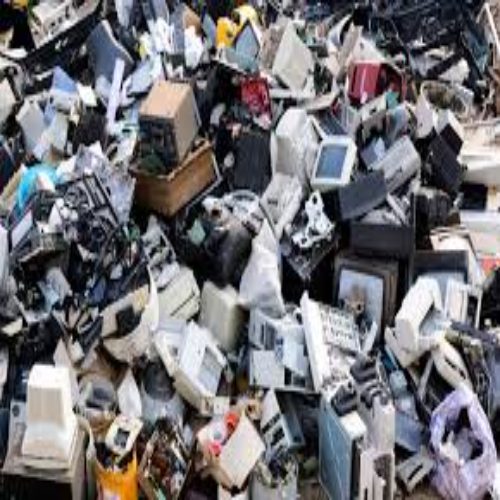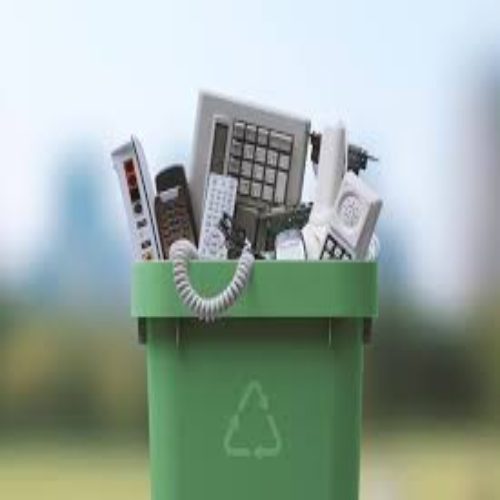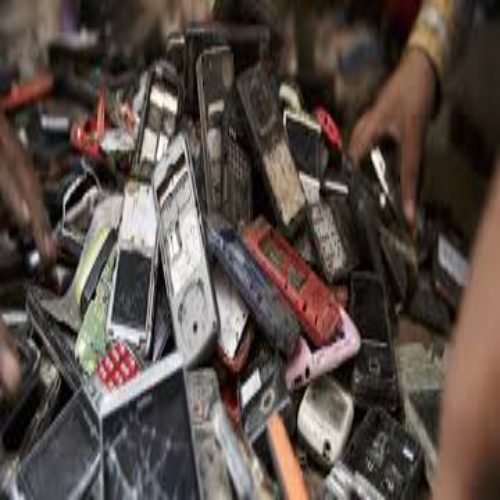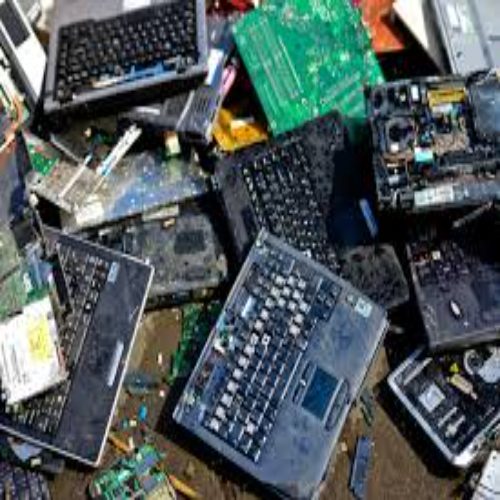
In 2019, electronic waste (e-waste) worth an estimated $57 billion in recoverable materials, including gold, silver, copper, and platinum, was lost due to improper recycling.
Many individuals often overlook how to dispose of old electronic and mobile devices responsibly. According to conversations held during a study two years ago, most people said they either sold their used devices, passed them on to others, or sent them to informal scrap metal recyclers. These informal operators dismantle devices, salvage useful components through primitive methods, and discard the remnants in landfills or incineration sites. This contributes to environmental pollution, contaminating soil, water bodies, and aquatic life.

While global discussions about climate change have focused on single-use plastics, e-waste, which has equally harmful effects on the environment and living organisms, has not received enough attention. The issue is exacerbated by the rising production of short-lived electronic gadgets.
According to the Global E-Waste Monitor 2020, 53.6 million metric tons (Mt) of e-waste were generated worldwide in 2019, but only 17.4% of this waste was properly recycled. The report indicates that e-waste generation increased by 9.2 Mt from 2014 to 2019, far outpacing global recycling efforts.

The largest contributors to e-waste in 2019 included small electronic equipment like fans, radios, and cameras, while lamps accounted for the least amount. Other contributors were temperature-control devices (e.g., air conditioners), large appliances (e.g., refrigerators), and household equipment.
Africa generates less e-waste compared to other continents, but much of its volume comes from imports of outdated or malfunctioning devices through global trade routes. In 2019, North Africa generated the most e-waste (1.3 Mt), while Central Africa produced the least (0.2 Mt). Nigeria, Egypt, South Africa, Angola, and Ethiopia were among the largest producers of e-waste on the continent, driven by urbanization, industrialization, and rising disposable income.

Despite producing a smaller volume of e-waste globally, only 0.9% of Africa’s e-waste was properly recycled in 2019. Most recycling efforts are carried out by informal workers, as formal recyclers remain scarce. In regions like southern Africa, progress has been made, but countries in North Africa recorded no recycling activity during the same period.
Some governments have taken steps to address the issue. Nigeria’s National Environmental Standards and Regulations Enforcement Agency (NESREA) introduced regulations for the ethical disposal of e-waste. The E-Waste Producers Responsibility Organization of Nigeria (EPRON), launched in 2018, works with stakeholders such as Microsoft and Hewlett-Packard to promote responsible practices. Similar initiatives exist in countries like Rwanda, South Africa, Cameroon, and Ghana, home to Africa’s largest e-waste dump site.

Despite these efforts, challenges persist. Dr. Ifeanyi Ochonoghor, CEO of E-Terra Technologies in Nigeria, highlighted that informal recyclers dominate the industry. He emphasized the need for government awareness campaigns, e-waste collection centers, and stricter enforcement of regulations.
A lack of public understanding about the dangers of e-waste further complicates the problem. Many people are aware of the environmental harm caused by plastics but seldom consider the impact of improperly discarded electronics.
Ochonoghor also pointed out the continued influx of outdated and non-functional electronics into Africa despite international laws regulating their trade. He called for stronger enforcement to curb this inflow.
The coronavirus pandemic in 2020 presented both challenges and opportunities for the e-waste industry. While E-Terra introduced new services and secured a major recycling contract, it suffered significant losses when an explosion damaged its facility in Lagos. Ochonoghor expressed optimism but underscored the pressing need for collaborative efforts to address Africa’s e-waste crisis.


